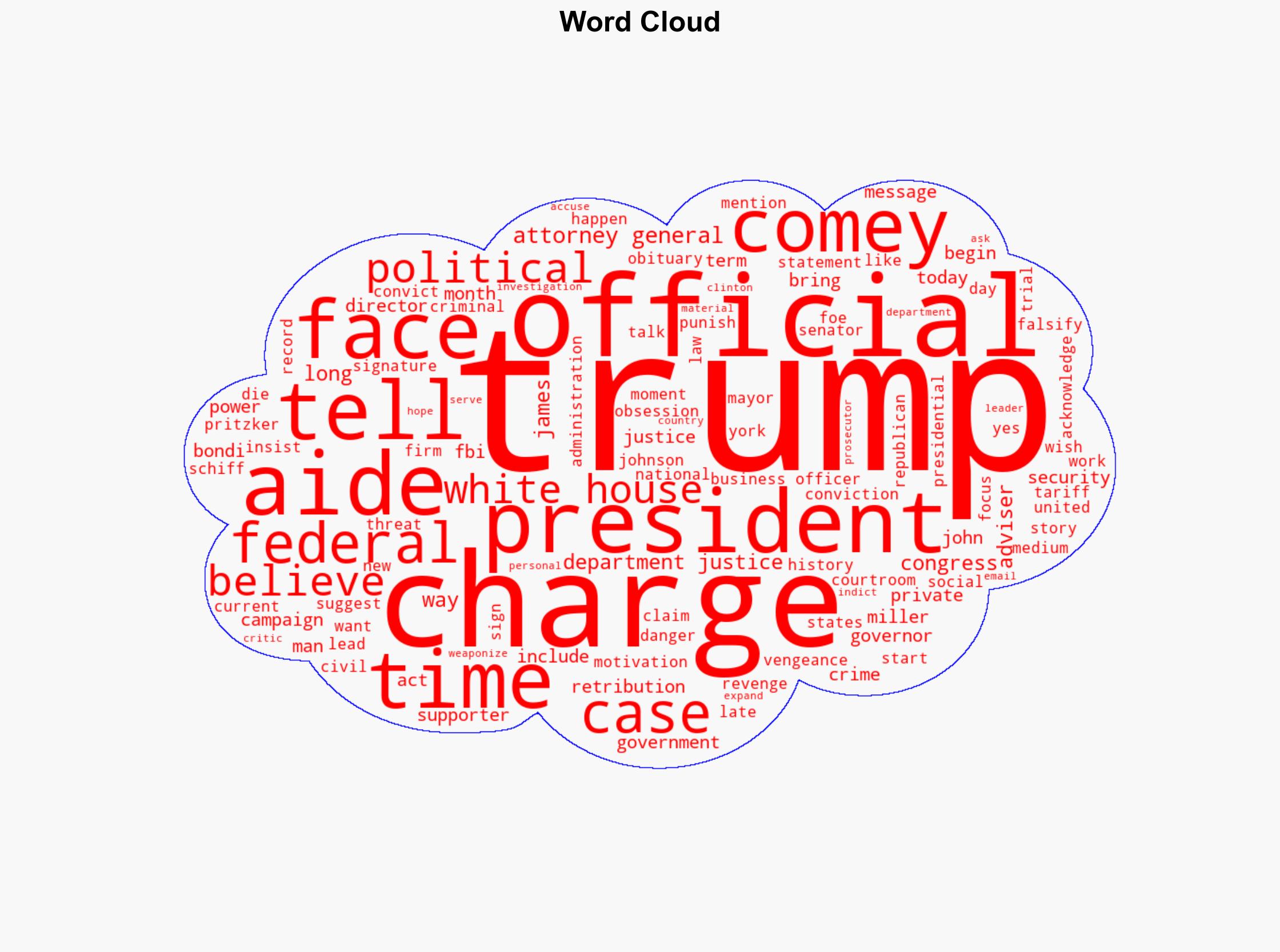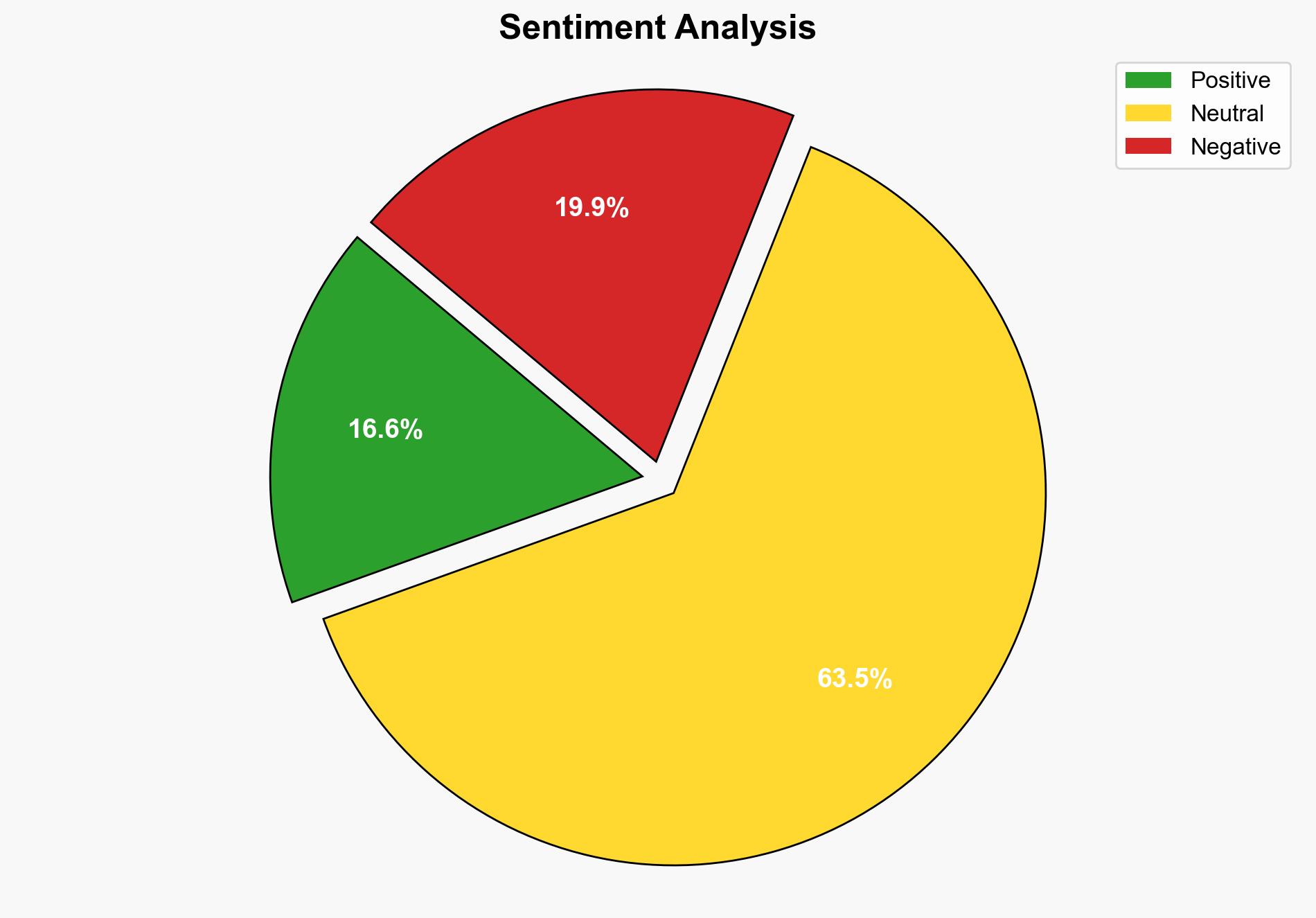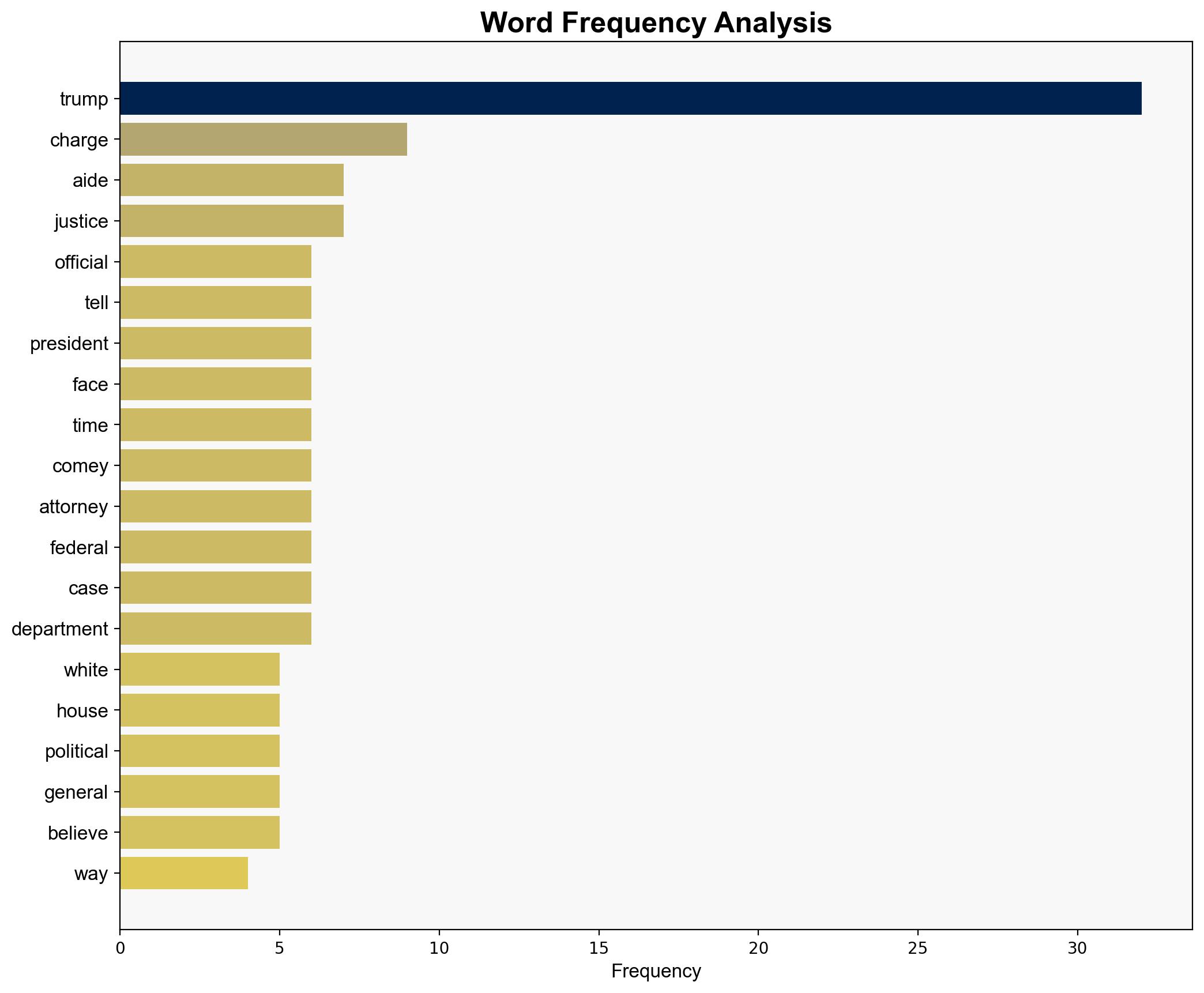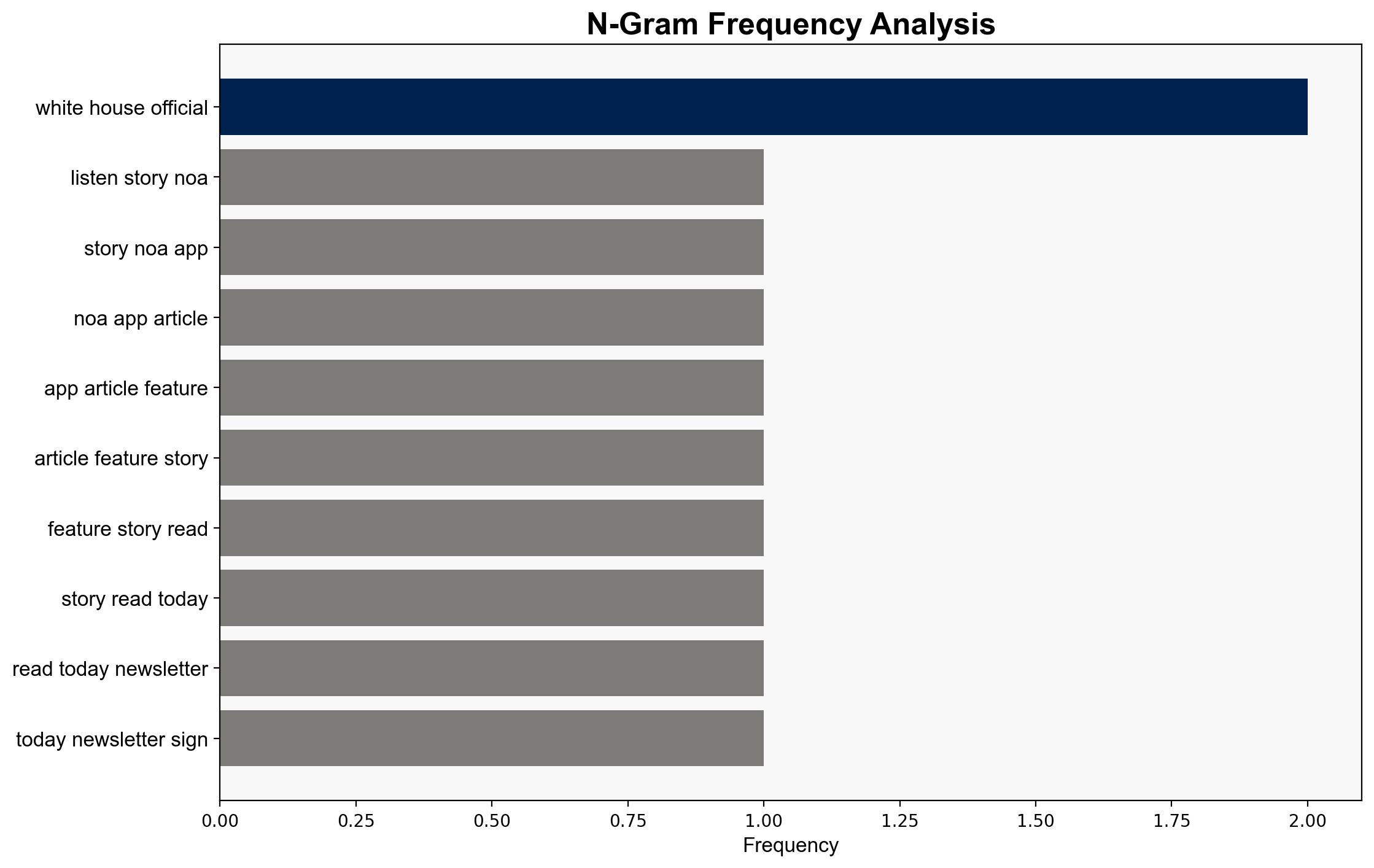Retribution Is Here – The Atlantic
Published on: 2025-10-09
Intelligence Report: Retribution Is Here – The Atlantic
1. BLUF (Bottom Line Up Front)
The intelligence suggests a potential escalation in political retribution tactics by Donald Trump, with a focus on targeting political adversaries. The most supported hypothesis is that Trump’s actions are primarily driven by a personal vendetta and a strategy to galvanize his political base. Confidence level: Moderate. Recommended action: Monitor Trump’s rhetoric and actions closely for potential legal and political ramifications, and prepare for increased polarization and instability.
2. Competing Hypotheses
1. **Hypothesis 1**: Trump’s actions and rhetoric are primarily driven by personal vendetta and a desire for retribution against perceived political enemies. This includes leveraging his legal challenges to portray himself as a martyr to his supporters.
2. **Hypothesis 2**: Trump’s behavior is a calculated political strategy aimed at consolidating his base by portraying himself as a victim of political persecution, thereby strengthening his position for future electoral contests.
Using ACH 2.0, Hypothesis 1 is better supported as it aligns with Trump’s historical behavior patterns and personal motivations. Hypothesis 2, while plausible, lacks direct evidence of strategic planning beyond immediate retaliatory actions.
3. Key Assumptions and Red Flags
– **Assumptions**: It is assumed that Trump’s rhetoric directly translates into actionable political strategy. Another assumption is that his supporters will uniformly respond to his portrayal as a victim.
– **Red Flags**: The lack of concrete evidence linking Trump’s rhetoric to a broader strategic plan raises questions. Potential cognitive bias includes confirmation bias, where observers may interpret Trump’s actions as purely retaliatory without considering strategic elements.
– **Inconsistent Data**: The absence of explicit strategic documents or plans supporting Hypothesis 2.
4. Implications and Strategic Risks
– **Political Polarization**: Increased rhetoric could deepen divisions within the U.S., leading to heightened political instability.
– **Legal and Economic Risks**: Potential misuse of legal systems for political purposes could undermine institutional trust and have economic repercussions.
– **Cyber and Geopolitical Dimensions**: Escalating tensions could manifest in cyber operations targeting political adversaries, impacting national security.
5. Recommendations and Outlook
- Monitor Trump’s communications and legal proceedings for signs of escalation.
- Prepare contingency plans for potential civil unrest or political violence.
- Scenario Projections:
- Best Case: De-escalation of rhetoric leading to reduced political tensions.
- Worst Case: Escalation leads to significant political and social unrest.
- Most Likely: Continued rhetoric with sporadic legal and political challenges.
6. Key Individuals and Entities
– Donald Trump
– J.B. Pritzker
– Brandon Johnson
– James Comey
7. Thematic Tags
national security threats, political instability, legal challenges, U.S. domestic politics





